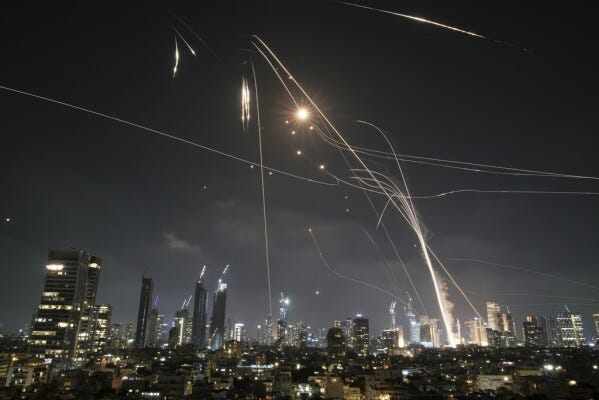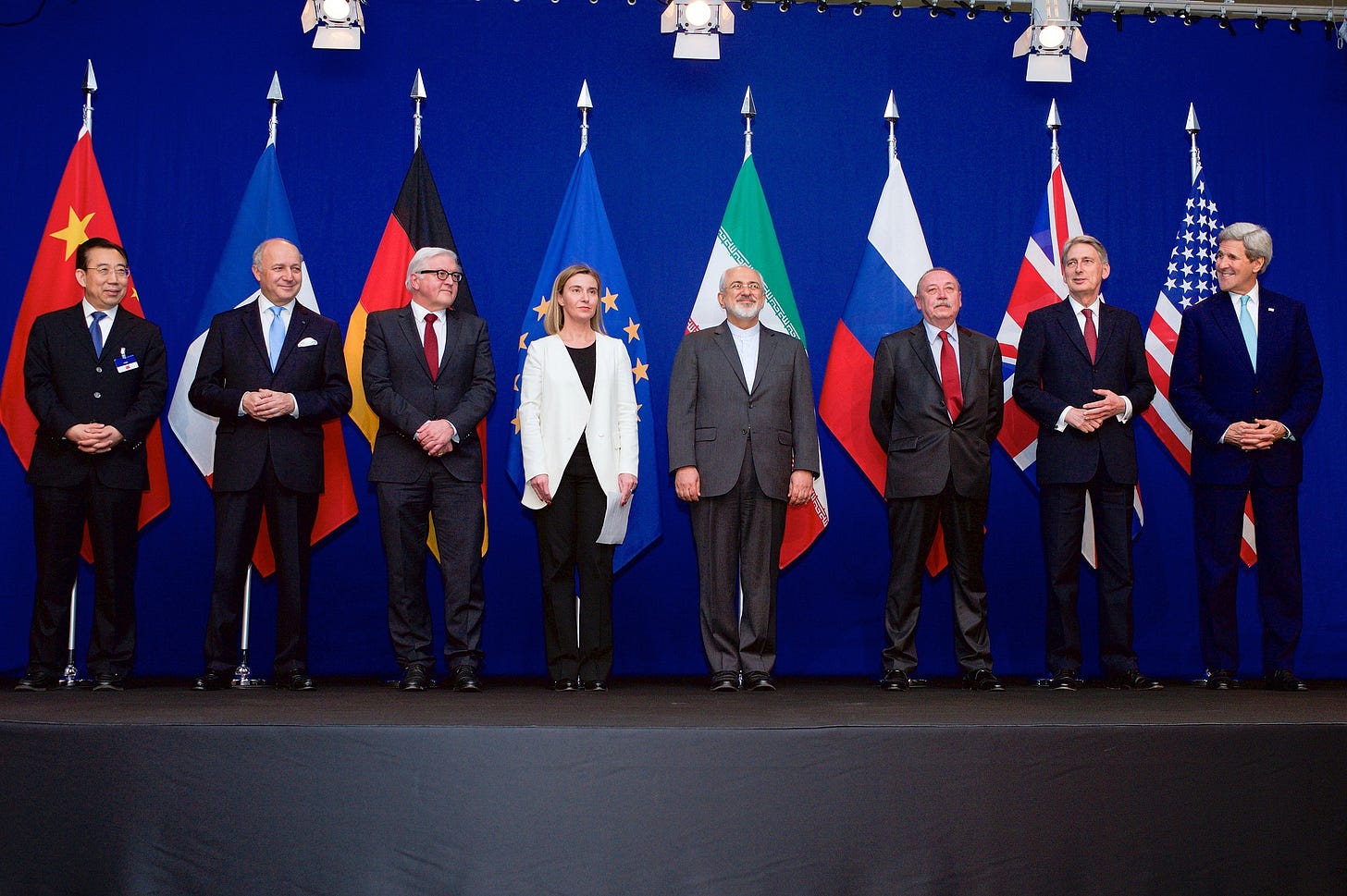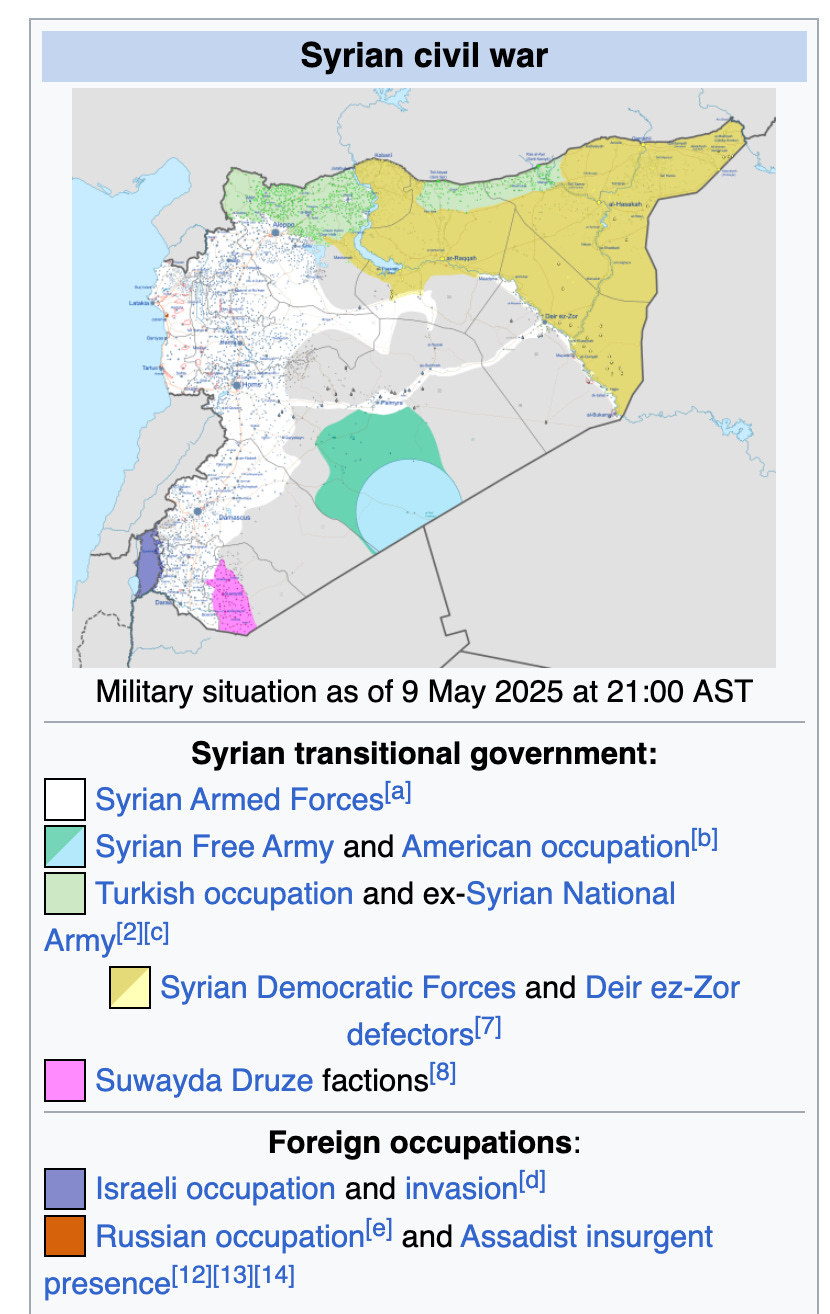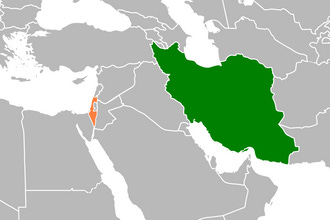Israeli Objective with Iran: Complete Regional Hegemony
Nuclear weapons or not, the Israelis want to neutralize Iranian power by dissolving the state

Israel’s Friday the 13th surprise attack against Iran has resulted in a heated conflict between the two countries, with missile and drone strikes being launched against one another every day. From what public reports showed, both Israel and Iran have given and taken some pretty significant hits. The impacts have become less clear in recent days, with both countries instituting heavy censorship on the press and any public reporting (including from individual cell phones) on visuals of the attacks.
Over in the United States, President Trump has found himself in a very tricky situation with no easy way out. There is significant pressure on him by war hawks, the Israel lobby and neocon advisors to join Israel’s war against Iran - including by instituting a direct attack against Iran’s Fordow enrichment facility. However there is also significant, and perhaps surprising, pushback against any U.S. participation from leading supports of Trump in the MAGA movement - including Tucker Carlson, Steve Bannon and Marjorie Taylor-Green.
Unfortunately for Trump, there isn’t much of a middle ground to choose from. And what ever course of action he does or doesn’t take could (and probably will) have profound implications. More on that in Part Two.
But first its important to explore why is Israel attacking Iran in the first place.
The Nuclear Canard

The ostensible reason given for Israel’s sneak attack is that the Israelis felt Iran was perilously close to developing a nuclear bomb, which they viewed a nuclear-armed Iran as an existential threat. But there are a few issues with viewing this as the only casus belli - and its certainly in doubt that Iran was so close to getting a bomb that an attack had to happen right now.
For one thing, we know that U.S. intelligence has assessed that Iran is not seeking to develop a nuclear weapon and we also know the IAEA inspectors have stated they did not see any evidence Iran was developing one either. There is also a religious fatwa issued by the Supreme Leader of Iran against development of nuclear weapons, which some may dismiss as meaningless but is something that is taken very seriously in Iran.
Now, it is true that Iran had started to enrich uranium up to 60% levels, which is short of what you need for an atom bomb (uranium needs to be around 90% enrich for that to happen.) But it was felt this was far and above what was necessary for any civilian nuclear energy program.
Their enrichment of uranium to that level may be for a few reasons, (1) to give them leverage in on-going negotiations, which they hoped would ultimately result in a deal with the United States; and (2) to attain “latent capability” - meaning they would not develop nuclear weapons but they could be a few steps away from doing so if ever attacked. In other words, as some kind of nuclear deterrent without having a nuclear bomb.
But either way, Iran was clearly not on an immediate cusp of attaining a nuclear weapon. And concerns that Israel and the U.S. had about Iran’s uranium enrichment were being addressed in the on-going diplomatic negotiations that the U.S. and Iran were having. Trump seemed determined to see those negotiations result in a deal.
And that was probably Israel’s biggest concern. Remember, Iran actually had a deal with the United States, (the JCPOA, negotiated by Obama), where Iran agreed to limit its uranium enrichment to 3.67% - effectively precluding it from any weaponization. And yet, at the urging of the Israelis, Trump pulled out of the deal.
At the time, the Israelis said their issues with the deal were that it was only for 10 years and that it didn’t prevent Iran from developing ballistic missiles. But there is no reason to believe Iran would suddenly develop a nuclear weapon after 10 years, especially given the fact that it would be getting sanctions relief that would integrate it with the rest of the world - a position it would not want to give up. But that is what the Israelis feared the most.
Israel’s Objectives: Syrianize Iran
I don’t doubt that Iran developing a nuclear weapon would be of great concern to Israel and that they would do what they felt was necessary to stop that from happening. I do disagree on the likelihood of Iran ever using its nuclear weapon - it would almost certainly be for deterrent purposes - but let’s set that aside for now.
The fact of the matter is that Israel could have had a nuclear-free Iran if it allowed a deal to go through that recognized Iran’s right to have a civilian nuclear energy program, monitored by outside inspectors, in exchange for sanctions relief. In otherwise, the JCPOA. But that would mean that Iran becomes normalized in the region, which Israel views as unacceptable.
Israel wants complete regional hegemony. It doesn’t just want to be the dominant power in the Middle East, it wants to be the only power. For that to happen, it needs every other state to either be submissive or utterly powerless. Egypt, once Israel’s main enemy in the region, now operates as a U.S. client state with its military-run junta directly financed by the American government. Saudi Arabia is effectively a client state as well. Iraq had once been a regional power that could challenge Israel, it now houses American military bases.
And then there is Syria. Syria neighbors Israel, has fought a number of wars with it and while it certainly could not pose any meaingful threat to Israel given the vast superiority of Israel’s military - it was still an obstacle to Israel’s complete control over the region.
That problem was solved with a decade and a half long war that began with mass protests, but dissolved into utter chaos as various militants (with money and weapons that flooded in from outside Syria) fought each other for control of the country. In fact, in the chaos of the war Israel was able to launch attacks against Syrian military bases, airports, missile storage and naval assets - which then enabled it to invade and occupy land in southern Syria.
The war left Syria in near complete ruin and almost 700,000 people dead. But a smashed up Syria is preferable to Israel than a Syria run by a government not subservient to Tel Aviv. Now Syria is in ruins. And that is likely what Israel is looking to do to Iran.
Project Iran
Iran is unique in the region. Unlike many of its neighbors, it was not drawn up by European imperialists as they dismantled the Ottoman Empire and sought to create weak states that could be controlled. It is a civilization going back thousands of years. It is a country that has a population 10 times the size of Israel and a land mass 75 times its size. Iran has vast oil and gas wealth, an educated workforce and an industrial base. If ever it were to have sanctions lifted, it would plausibly become a regional power - one that other states (e.g., around the Gulf) may begin to integrate with economically. And perhaps one that could challenge Israel’s ability to fulfill its ultimate goal of ethnically cleansing Arabs from the West Bank and Gaza and claiming all the land for Israeli Jews. That is a big problem for the Israelis.
It doesn’t matter if Iran poses a direct threat to Israel. After all, Israel has a nuclear deterrent and the full backing of the United States. It is not facing an existential threat from anyone.
But whether or not Iran has nuclear weapons, Israel doesn’t want to see a powerful Iran in the Middle East period - and will do anything it can to prevent that from happening.
You can say that is rational, but it is important to note is that every state has to learn to live with the fact that other states have militaries that might be capable of attacking them. That is how the international system works, even if it allows for tension between states. You can address this tension through deterrence and diplomacy, or you can address it through destruction. Israel has deterrence and had on-going diplomacy - but now it has decided on destruction instead.
Because the Israeli plan in Iran is not just to destroy any semblance of Iran’s nuclear capabilities, though that is certainly a major goal. It is also pretty clearly seeking “regime change”, which is explicitly acknowledged by many of its most ardent supporters. But what does that even mean? Can Israel actually replace the Islamic Republic with a more subservient government?
Not necessarily - but it can seek to dissolve the Iranian state, similar to what happened in Syria.
The first part of this would be to cripple any power the state has, including decapitating its leadership. But beyond that, it would mean wiping out any Iranian military capabilities so that the state itself is defenseless or at least no longer has a monopoly on violence. Next, it would mean supporting any rebel group (including those based outside the country) that either sought to overthrow the Islamic Republic or secede from Iran.
For example, one can imagine the Israelis arming and supporting groups like the MEK which might try to foment an armed uprising against the government, while simultaneously encouraging the Kurdish regions of Iran to try and create their own autonomous state. Perhaps Russia gets involved to help the Iranian government, perhaps Pakistan has its own interests there to protect, perhaps the Saudis do as well - and certainly the Americans would take advantage of the situation.
Nothing would go according to plan, but the ensuing chaos would bog Iran down into a bloody and protracted conflict within its own borders as outside weapons and armed groups flood in. It may or may not just collapse into a failed state, with the country destroyed and hundreds of thousands of people dead. Just like Syria. But in the meantime, Israel would see itself as having neutralized a threat - satisfied that it did not have to accommodate Iran into the region because it had it destroyed instead.
There is just one problem. Israel doesn’t have the capabilities to do this alone - and that is where the United States comes in.



